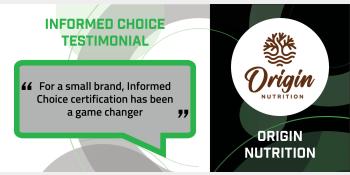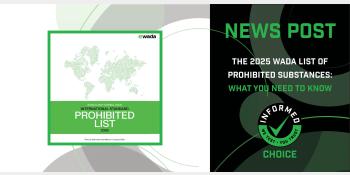Informed Choice News
LGC warning for AMP Citrate, the latest risk to professional sport
20 October 2014, Teddington, UK - LGC is monitoring for the presence of AMP Citrate in sports supplements products as the prohibited compound looks set to become the next significant risk to athletes in elite sport.
AMP Citrate – also known as DMBA – is a pre-workout ingredient that has already been identified in a number of sports nutrition products.
It poses a risk to athletes failing an anti-doping test because it has a similar chemical structure to the prohibited substance DMAA (methylhexanamine, 1,3-dimethylamylamine).
DMAA has resulted in a number of athletes committing anti-doping violations, as well as being the cause of a number of adverse health implications, in recent years and LGC’s monitoring of DMBA involves alerting both sport and athletes to the risks involved.
“AMP Citrate poses a similar threat to sport as methylhexanamine, and our task is to help athletes avoid using products that could result in them failing an anti-doping test due to this compound,” explained Terence O’Rorke, LGC’s Business Development Director.
“DMBA (AMP Citrate) has a similar chemical structure to DMAA (methylhexanamine) and is therefore considered prohibited in sport by the World Anti-Doping Agency (WADA) under its List of Prohibited Substances and Methods.
“LGC has been testing for DMBA for more than 12 months now and any products containing this substance are not permitted on our Informed-Sport or Informed-Choice programmes. We cannot allow an athlete’s career to be in the hands of a supplements salesman.”
The risk of inadvertent doping through sports and dietary supplements – either those contaminated with prohibited substances or a prohibited substance actually being added to the ingredients – is an ongoing issue for both elite athletes and the general consumer worldwide.
UK Anti-Doping (UKAD) reported earlier this year that 44% of positive cases within its 2012 testing programme were related to sports nutrition products.
The Court of Arbitration for Sport (CAS) reported that seven positive findings from the 2014 Winter Olympic Games involved sports supplements, while high-profile athletes failing tests continue to blame their sports nutrition products.
O’Rorke added, “We advise all consumers not to use supplements containing DMBA because the health implications are completely unknown. It is a potential risk to health and certainly a risk to an athlete’s career.
“This is why we developed programmes such as the Informed Sport and Informed Choice, to provide both athletes and consumers with a means to identify safe products.
“Sections of the supplements industry consistently try to create the next great product, without proper reviews for safety or legitimacy, while other manufacturers genuinely are not aware of the risks because this issue is complex and challenging.
“DMBA or Amp-Citrate is not specifically listed in the WADA List and it requires the expertise of anti-doping laboratories such as LGC to guide both the supplements industry and athletes with regards to this threat.”










